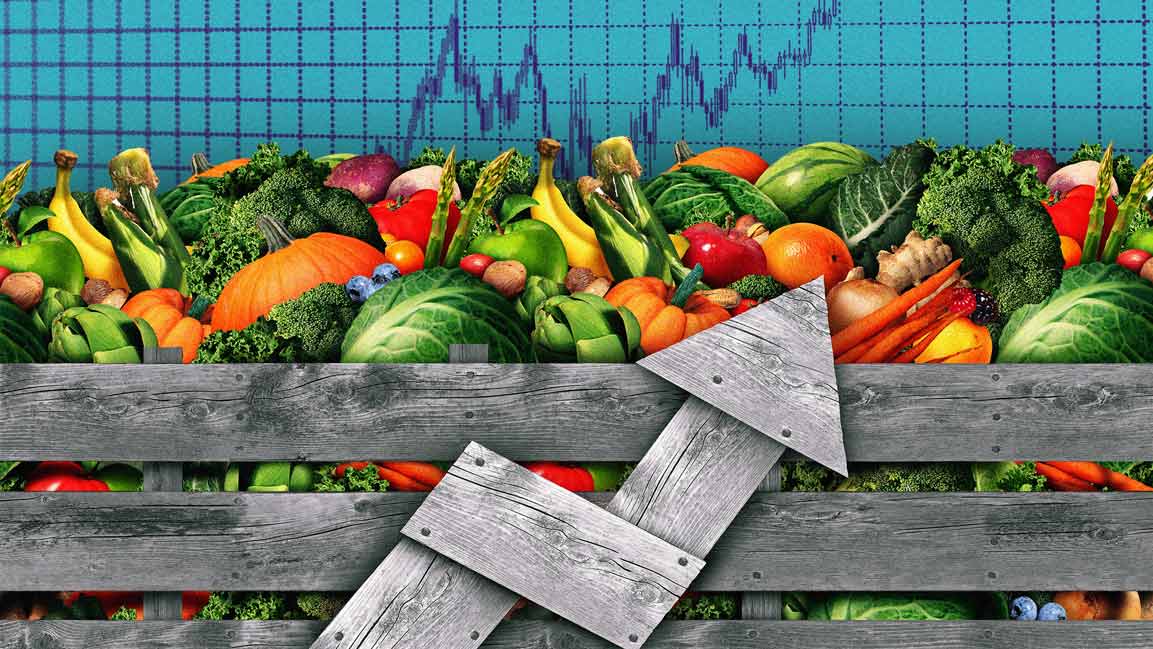Not a few Nigerian consumers are waiting anxiously for this year to roll away. Many are tired of 2023. The year has bruised and battered many of them. They started the year in pain, amid a currency exchange that posed an existential threat to their lives. They are ending the year with many still pressured and gasping for breath.
This is a year that has successfully dethroned the average consumer, taking from him the power to decide prices on the market. This year has taught us a serious lesson that it is not the consumer that holds the power when it comes to deciding the prices at which goods are ultimately sold in the market.
Indeed, the outgoing year has proven the truth in Adam Smith’s declaration that: “It is not from the benevolence of the butcher, the brewer, or the baker that we expect our dinner, but from their regard to their self-interest. We address ourselves not to their humanity but to their self-love, and never talk to them of our own necessities, but of their advantages” (from An Inquiry into the Nature and Causes of the Wealth of Nations).
It is not. It has never been so, neither then in 1776, when Smith wrote his seminal book, nor now, in the first quarter of the 21st century, when capitalism is facing a tough challenge. Even with reformed capitalism, costs must be covered if producers must remain in business, and the rule in business is that every cost resource must be appropriately priced and charged fully. Each business person looks for his benefit, and this is the driving force behind every enterprise.
FG to deploy geospatial technology for dev’t planning
Allow married women to bear fathers’ names -MURIC tells FG
This explains the fact that despite how well-meaning Nigerian businesses and their owners are, prices of goods and services remained relatively high in historical terms. Tokenism could play its role when producers want to win sympathy. They can give price cuts just to calm some customers, but the principles must be applied.
This year, we found ourselves in an economy where all prices were moving at the same time. No sector was spared, and no producer or seller would be blamed if they raised their prices. It got to a point that anyone who had not raised their price was seen as an odd man out.
This year the Nigerian consumer became a price taker, with the power to bargain effectively taken away from him or her. This manifested clearly in the rapidity in which prices changed upwards. If you fail to buy an item today and go back tomorrow, you will discover that the price has risen.
The situation has gotten so bad that sellers now advise their good customers to buy more today to escape the higher prices of tomorrow.
But in the price increase the consumer is getting worse off than is apparent. His welfare is being eroded from both ends. First, the price increase means that he can only buy a fraction of the quantity that a given could give him. That is a decrease in consumer welfare.
However, the second loss of welfare is insidious. Dear consumer, take a look at the various goods on which prices have been raised. You will notice that their quantities have been reduced.
Check the powdered milk you buy now. The price is up, the quantity is down. It is the same for your favourite bread: its price has probably doubled this year, while the loaf has shrunk in size. It is like this for so many products. Nigerians are paying more for less, both in quality and quantity. So, it has been a double whammy for the consumer on all fronts. It’s a kind of devil’s alternative: head, we lose; tail we cry.
This is why the average consumer, who has depended on his or her regular income, is crying. Real incomes have regressed steeply, deflated by rising price levels. We began the year with a headline inflation rate of 21.34 per cent, which was the December rate. The corresponding food inflation rate was 23.75 per cent. ….
Today both have soared higher. Headline inflation at the end of November this year was 28.2 per cent, with food inflation jumping to 32.84 per cent, showing nine percentage points increase over the period. This again shows how much we have been short-changed by the system.
Soon, from projections about the December 2023 inflation figures, our inflation rate will hit a 20-year high. This means that living now will be just about the same level as we experienced two decades ago. In other words, we will be living two decades backwards, as far as consumer welfare is concerned. We would consume the same basket of foods that we consumed when most of the children graduating from universities were born, or even unborn.
This is why many Nigerians are looking beaten and battered. They are living far below whatever level they lived on last year and the years before. For many of them, food has virtually disappeared from their tables, while in many cases, the frequency of feeding has been drastically reduced, for both children and adults.
“The rise in food inflation on a month-on-month basis was caused by a rise in the rate of increase in the average prices of bread and cereals, oil and fat, meat, coffee, tea and cocoa, potatoes, Yam and other Tubers,” the National Bureau of Statistics explained as it announced the November inflation figures recently.
As the year draws to a close, the authorities must find ways to fulfill their promises to make life easier for Nigerians. Wrong actions and inaction by governments work together to create problems. In the same way, good and appropriate actions work also to lift economies out of whatever challenges they get into. That is what Nigerians look forward to in the New Year.

 Join Daily Trust WhatsApp Community For Quick Access To News and Happenings Around You.
Join Daily Trust WhatsApp Community For Quick Access To News and Happenings Around You.


